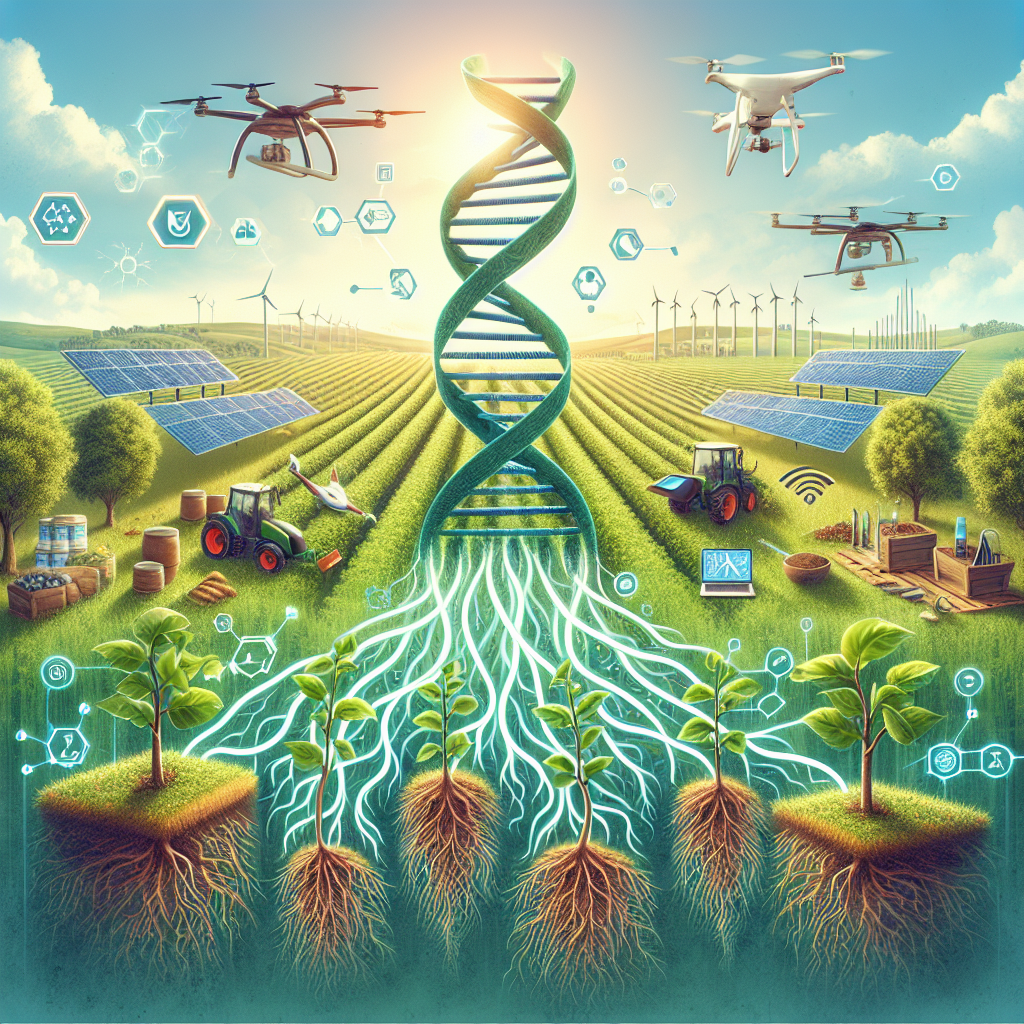Biotechnology Revolutionizes Sustainable Agriculture: The Potential for Positive Impact
In recent years, biotechnology has been making waves in the agricultural industry, revolutionizing the way we grow and produce food. By harnessing the power of genetic engineering, researchers are developing innovative solutions to improve crop yields, increase resistance to pests and diseases, and reduce the environmental impact of agriculture. This shift towards sustainable agricultural practices has the potential to transform the industry and address some of the most pressing challenges facing food production today.
One of the key benefits of biotechnology in agriculture is its ability to improve crop traits through genetic modification. By introducing specific genes into plants, researchers can enhance their ability to withstand harsh growing conditions, such as drought, extreme temperatures, and soil salinity. This not only increases crop yields but also reduces the need for chemical inputs, such as fertilizers and pesticides, which can have harmful effects on the environment and human health.
Another important application of biotechnology in agriculture is the development of genetically modified (GM) crops that are resistant to pests and diseases. By inserting genes that produce natural toxins or repel insects into crops, researchers can create plants that are less vulnerable to damage from pests, reducing the need for chemical pesticides. This not only benefits farmers by reducing crop losses but also helps to protect the environment by minimizing the use of toxic chemicals.
Biotechnology also plays a crucial role in improving the nutritional quality of food crops. Through genetic engineering, researchers can enhance the levels of essential nutrients in crops, such as vitamins, minerals, and proteins, making them more nutritious and potentially addressing deficiencies in populations that rely on these crops as their primary food source. This has the potential to have a significant impact on global public health by combating malnutrition and improving overall well-being.
In addition to these direct benefits, biotechnology can also help to reduce the environmental impact of agriculture by promoting sustainable practices. By increasing crop yields and reducing the need for chemical inputs, genetic engineering can help to conserve natural resources, protect biodiversity, and mitigate the effects of climate change. This is especially important as the global population continues to grow, putting increasing pressure on the world’s food supply and natural ecosystems.
With all these potential benefits, it is clear that biotechnology has the power to revolutionize sustainable agriculture and transform the way we produce food. By harnessing the latest advances in genetic engineering, researchers are developing innovative solutions to some of the most pressing challenges facing the agricultural industry, from increasing crop yields and reducing pesticide use to improving nutritional quality and protecting the environment. The potential for positive impact is immense, and the future looks bright for a more sustainable and resilient food system.
FAQs:
Q: Are genetically modified (GM) crops safe to eat?
A: Yes, extensive research has shown that GM crops are safe for human consumption and have been approved for use by regulatory agencies around the world, including the FDA and the European Food Safety Authority.
Q: Do GM crops harm the environment?
A: While there are concerns about the potential impact of GM crops on the environment, studies have shown that they can actually reduce the environmental impact of agriculture by reducing the need for chemical inputs and promoting sustainable practices.
Q: What are the main challenges facing the adoption of biotechnology in agriculture?
A: Some of the main challenges facing the adoption of biotechnology in agriculture include regulatory barriers, public perception, and concerns about the long-term impact on human health and the environment. However, ongoing research and communication efforts are helping to address these challenges and promote the responsible use of biotechnology in agriculture.
Q: How can farmers benefit from biotechnology in agriculture?
A: Farmers can benefit from biotechnology in agriculture by increasing crop yields, reducing the need for chemical inputs, improving resistance to pests and diseases, and enhancing the nutritional quality of food crops. These benefits can help farmers to improve their livelihoods, reduce their environmental footprint, and meet the growing demand for sustainable food production.
